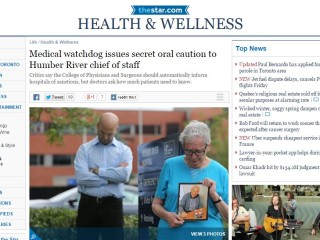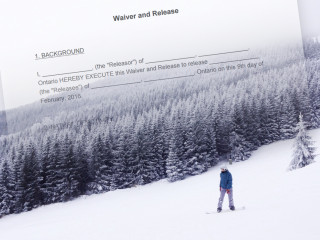The Court of Appeal orders a new trial after finding the trial judge failed his gatekeeper duties in allowing Dr. Monte Bail’s testimony.
Released June 16, 2017 | Full Decision [CanLII]
The appellant was involved in a rear-end motor vehicle accident. At the trial, the only question was what damages, if any, did the appellant suffer as a result of the accident. The appellant called a number of physicians and the consensus among them was that she suffered in the manner complained of. The defence called two witnesses, one of whom was Dr. Monte Bail, psychiatrist. On appeal, the appellants advanced several arguments to the effect that trial fairness was breached due to Dr. Bail’s expert testimony.
First, the appellant objected to Dr. Bail’s testimony because his report was essentially an attack on the appellant’s credibility. Appellant’s counsel pointed to numerous instances in the report where the doctor commented on discrepancies between the information provided by the appellant in her interview with him and what he later found in her medical records. These alleged inconsistencies were never put to the appellant violating the rule in Browne v. Dunn.
Second, the appellant argued that Dr. Bail was biased and that she should be permitted to cross-examine the doctor on findings made in another court case and two arbitrations to the effect that he was not an independent witness.
The trial judge ruled against the appellant on both these grounds. The trial judge then proceeded to rule that Dr. Bail could not testify on certain sections of his report where he was critical of the reliability of the conclusions reached by other doctors who examined the appellant. The trial judge also made it clear that he did not want Dr. Bail testifying about the appellant’s credibility. Unfortunately, Dr. Bail’s testimony crossed the line of an objective witness to that of an advocate for the defence. Despite the trial judge’s reservations of Dr. Bail’s testimony, he did not give special instructions in his jury charge regarding Dr. Bail’s testimony, nor did he instruct the jury regarding the duty of expert witnesses nor did he raise any concerns about the substance of Dr. Bail’s independence.
The Court of Appeal had three questions to answer:
- Did the trial judge err in not permitting the appellant to cross-examine Dr. Bail on prior court and arbitral findings made against him?
- Did the trial judge err in qualifying Dr. Bail as an expert and/or in not intervening or taking steps to exclude Dr. Bail’s testimony?
- Did the respondent violate the rule in Brown v. Dunn?
The Court of Appeal answered the first question in the negative. Prior comments would not have been of assistance to the jury without understanding their factual foundation and that necessary context would only have diverted the jury from the task at hand.
In answering the second question, the Court of Appeal held the trial judge was entitled to deference on the first part of the test of admissibility due to a low threshold as articulated in R v. Mohan. However, on the second part of the test for admissibility the Court of Appeal held the trial judge failed. The trial judge’s gatekeeper function did not end once Dr. Bail was qualified as an expert; instead the court has residual discretion to exclude expert evidence even after admitting it, if later in the trial prejudice emerges that was not apparent at the time of admission. The Court of Appeal held the trial judge failed to properly fulfill his gatekeeper function and engage in a cost-benefit analysis that weighed the probative value of Dr. Bail’s testimony against its prejudicial effect.
As a result, the third question did not need to be answered and a new trial was ordered.
Read the full decision on CanLII












